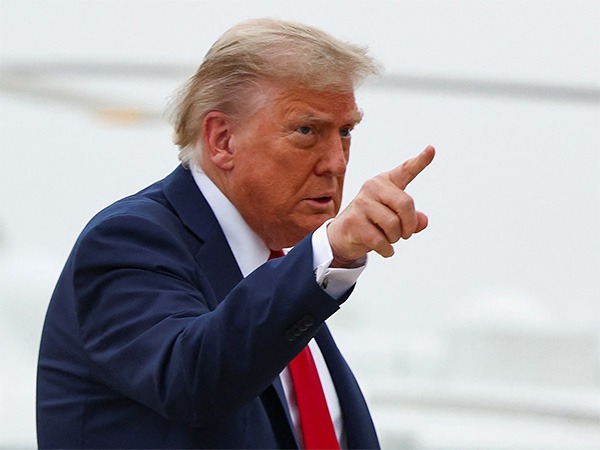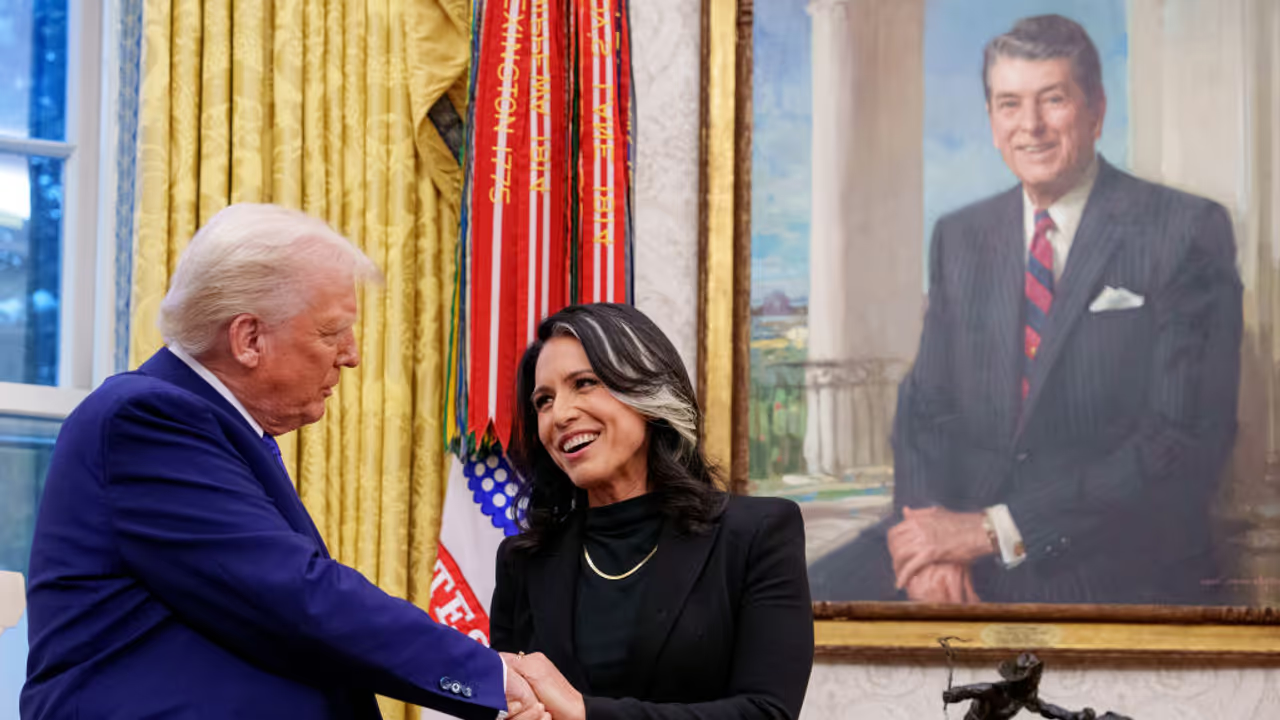Tulsi Gabbard’s testimony before Congress contradicted growing fears over Iran’s nuclear ambitions, but President Trump had a very different take.
President Donald Trump on Tuesday flatly dismissed Director of National Intelligence Tulsi Gabbard’s congressional testimony that Iran isn’t actively building a nuclear weapon, in what appears to be a public break with his intelligence chief during his second term.

Speaking to reporters aboard Air Force One, Trump contradicted Gabbard’s assessment without hesitation. When asked how close he believed Iran was to having a nuclear weapon, he replied, “Very close.” When a reporter pointed out that Gabbard had previously told Congress in March that the U.S. intelligence did not believe Iran was actively pursuing a warhead, Trump replied bluntly: “I don’t care what she said. I think they were very close to having one.”
The remarks appeared to align Trump with Israeli Prime Minister Benjamin Netanyahu, who had recently ordered airstrikes on Iranian nuclear and military sites, citing an imminent threat from Tehran. Trump seemed to support that view, despite his own intelligence chief stating otherwise.
Gabbard, during her Capitol Hill appearance, said that American intelligence agencies had found no indication that Iran’s supreme leader, Ayatollah Ali Khamenei, had given the green light to restart the nuclear weapons program that both the U.S. and IAEA concluded was halted in 2003. Iran has long insisted that its uranium enrichment is intended solely for civilian energy use.
A source familiar with current intelligence said Gabbard’s testimony still reflected the broader consensus within the U.S. intelligence community. According to that assessment, even if Iran chose to build a warhead now, it would take up to three years to develop a deliverable device capable of hitting a specific target. However, some experts argue Iran could produce a crude, untested device in a much shorter timeframe, though its reliability would be in doubt.
Trump Again at Odds with U.S. Intelligence Community

Trump’s latest rejection of his intelligence team's judgment echoes several high-profile clashes from his first term. He had previously dismissed conclusions that Russia interfered in the 2016 election, siding instead with Russian President Vladimir Putin.
His dismissive tone toward Gabbard, one of his most vocal loyalists also stood out. Despite Gabbard publicly stating they were “on the same page” regarding Iran, Trump’s comments strongly suggested otherwise.
Asked for clarification, the Office of the Director of National Intelligence referred journalists to a social media post quoting Gabbard’s earlier remarks that appeared to downplay any contradiction with the president.
The friction adds to ongoing mistrust between Trump and sections of the U.S. intelligence. For years, Trump and some of his supporters have claimed that certain officials within these agencies are part of a deep state working to undermine his presidency.
Gabbard, despite her formal role, has echoed similar sentiments in the past, making her testimony in Congress all the more striking. Nonetheless, the president appears determined to trust his instincts over official analysis, especially when it aligns with his foreign policy moves or long-held suspicions.


